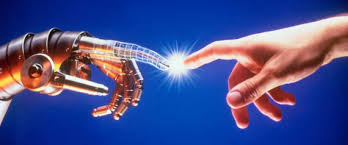Source – ecudaily.com.au
The thin line between human and robots is quickly being crossed. With the speed technology is developing and its impact in our lives, it may be safe to say that robots will be soon taking over.
How would you feel if your best friend in your twilight years was a robot? Is one of the many thought-provoking questions being posed at Queensland University of Technology (QUT’s) Robotronica event, Australia’s largest one-day robotics festival.
Robot intimacy is controversially touted as a solution to society’s loneliness epidemic. According to research from the American Psychological Association, social isolation and loneliness is quickly becoming a greater public health hazard than obesity.
Professor Ron Arkin, an international roboticist and robo-ethicist believes a future with companion robots is probable. Whether you like the idea or not he believes now is the time to discuss the ethics of forming close relationships with machines.
“The advent of robots poses many risks to our future, and intimate robots is one of the top concerns,” said Professor Arkin.
“Robots can foster attachments to artefacts that toys cannot due to their physical presence in the world and their ability to sense and act. Roboticists and designers can tap into the nature of human psychology to make people care about robots,” he said.
Recent movies and television series such as Ex Machina, Her and Westworld have brought the often confronting topic of robot intimacy into the public light.
“Robot intimacy will no doubt affect human-to-human relationships. It’s is not up to roboticists to tell the world what’s right or wrong but to foster the discussion among all stakeholders so society can debate now the ethical implications,” said Professor Arkin.
Creating emotional connections between humans and intelligent machines is a focus of Soh Yeong Roh, founder and director of Art Center Nabi in Korea and Robotronica panellistand exhibitor.
Their recent project Why future still needs us: AI and humanity at Robotronica includes Robo-Panda, a small panda-looking robot. It expresses emotion in response to fairy tales – anger, sadness, fear, disgust and joy.
“Artificial intelligence cannot develop without cooperating with diverse fields, since it is technology that is so tied to our everyday life,” said Soh Yeong.
According to Soh Yeong this has led to corporations such as Google, Microsoft and IBM to compete to release software with an open architecture.
